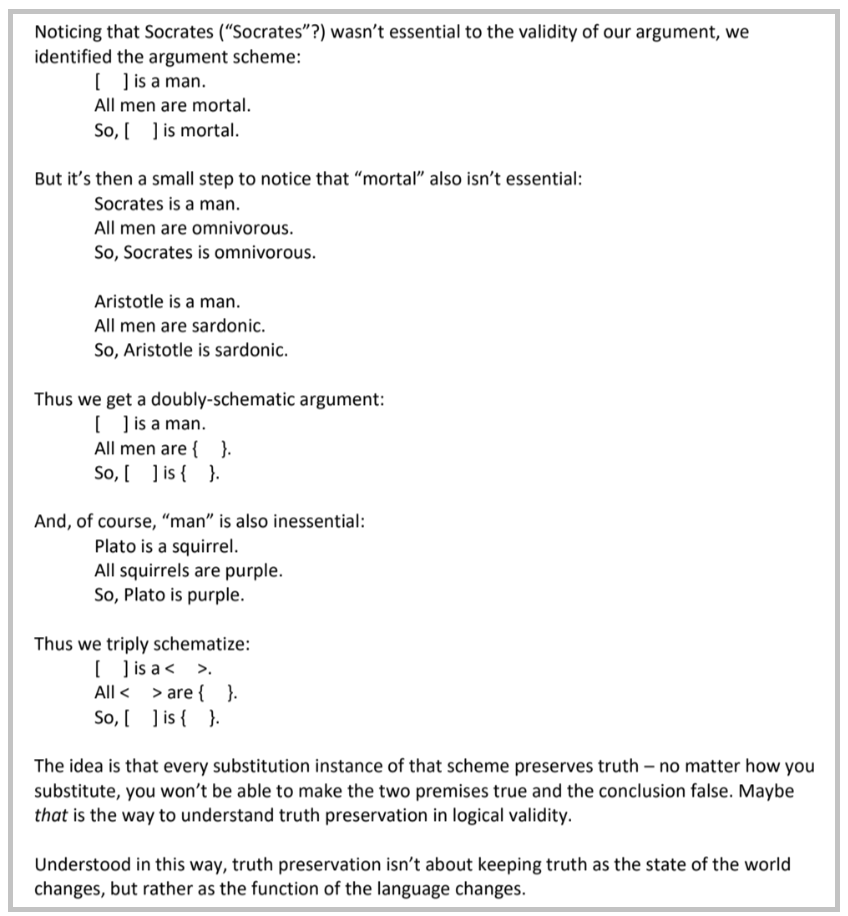A Little Logic Each Day (Semantics, too)
“Learn formal logic in lessons of 200 words per day.”
That’s the tagline for a project from Josh Dever, professor of philosophy at the University of Texas at Austin.

So far, he has created about 1300 mini-lessons in logic that anyone can subscribe to by email. Enter in your address here, and you’ll get a new mini-lesson in logic each day.
He also has a series in semantics, which you can subscribe to here.
Professor Dever writes:
The idea of each is that each day you get sent a little, roughly 200 word bite in the relevant area, so that you can gradually and painlessly(-ish) build up real expertise.
To date he has been sharing them mainly with graduate students in his department, and he says he writes them “with something like the grad-student-new-to-the-area audience in mind,” but now he has set things up so that anyone can subscribe if they’re interested.
Here’s a sample lesson from an early unit on truth preservation:

Ultimately, he hopes to have around 10,000 mini-lessons for each subject.
By the way, this isn’t Professor Dever’s first foray into creative logic teaching. Check out his Logibeast, a short, free, online book providing “a Pokemon-style creature-building implementation of propositional logic.”



This is really cool, I hope it is allowed to reuse it 🙂
Awesome. I’m curious if anyone (who is not named Josh Dever) has used Logibeasts in teaching logic? Seems like a really fun idea.
I’m outside the quantifier domain restriction, but nevertheless: I’ve tried it in the classroom once. Mixed feelings overall — I had fun writing the material, and still like the idea (one of my motivating thoughts was that students often get messed up with formal proof rules because they’re trying to bring to bear fallible logical instincts rather than just grappling with the rules as strict symbol-manipulation constraints, and thus that putting them in a follow-the-rules-of-the-game context might help them better attend to the constraint details). But it’s a lot of time investment for, I decided in the end, kind of limited payoff. I also discovered that I felt increasingly dumb saying all the creature names in lecture. I think the whole idea would be more useful if implemented as a playable computer or board game, but honestly, I’m never going to get around to doing that.
Still, if anyone else wants to give it a try in the classroom, I’m in favor, and let me know how it goes. I can even push my illustrator to finish creating the rest of the creature drawings.